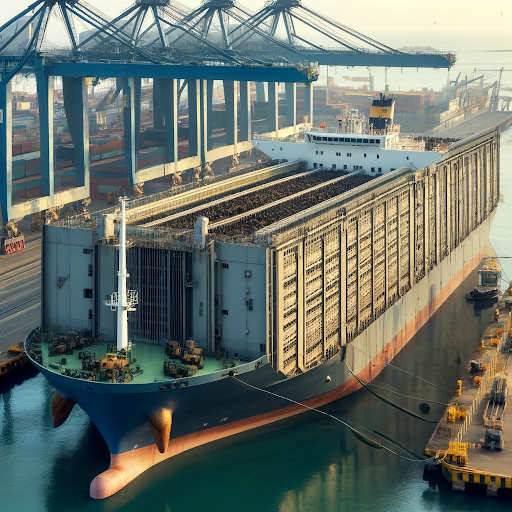Report Highlights Safety Risks of Livestock Carriers

The Animal Welfare Foundation from Germany and the French environmental group Robin des Bois have recently released a report highlighting the safety concerns of livestock carriers operating out of the European Union. This analysis updates a similar report released by the organizations three years earlier.
As of now, 64 livestock carriers are authorized to transport animals from EU ports to non-EU countries. The report reveals that almost half of these ships are registered under flags of countries identified as black flags by the Paris Memorandum of Understanding (MoU).
Out of these, only four ships were initially designed as livestock carriers, with the remainder being converted for this purpose after about 30 years of service. The average age of the livestock carriers decommissioned between 2018 and 2013 was 47 years. Interestingly, 30 (47%) of the EU-approved vessels are older than 47 years, and 17 surpass 50 years of age.
The report documents various incidents and deficiencies within this fleet. For instance, The Queen Hind capsized with 14,000 sheep on board while leaving Midia, Romania on November 24, 2019. Another example was the Elbeik which was declared a total loss after catching fire off Tarragona, Spain in 2021.
According to the Paris MoU’s 2022 annual report released in July 2023, livestock carriers had the highest detention rate at 7.9%, followed by general cargo/multipurpose ships at 6.8%, and tugs at 6.5%.
Between January 2021 and December 2023, 10 ships faced detention in various ports, leading to 12 detentions and 448 deficiencies. These ships include Bashar One Transport, Tuleen, Dania, Express M, Freesia, Mariona Star, Nabolsi I, Deala, Nader-A and Spiridon II.
The report revisits the Togolese-flagged Janay, which was notable in the previous report for a record 17 detentions. Since then, the vessel has been subject to an additional detention for 110 days in Midia in 2021.
The reasons for detention involved issues with the ISM system, lack of valid documentation, and violations of the Maritime Labour Convention, including unpaid wages.
Additionally, 75% (48 ships) were reported to have pollution prevention deficiencies between 2021-2023, and 78% had fire safety deficiencies. In a notable incident from October 2023, the EU-approved Brahman Express had to return to Darwin after a fire broke out shortly after departure.
The report also mentions the Elbeik’s notorious 92-day journey starting December 18, 2020, with 1,776 calves that were eventually euthanized upon their return to Spain. Following this, on August 6, 2021, a fire led to the vessel being declared a total loss while anchored off Spain at the age of 57.
The report concludes with the authors stating, "one disaster follows another in the maritime history of animal transport." They emphasize the overlooked issues of animal welfare, crew safety, and environmental pollution resulting from the use of substandard vessels in this trade.